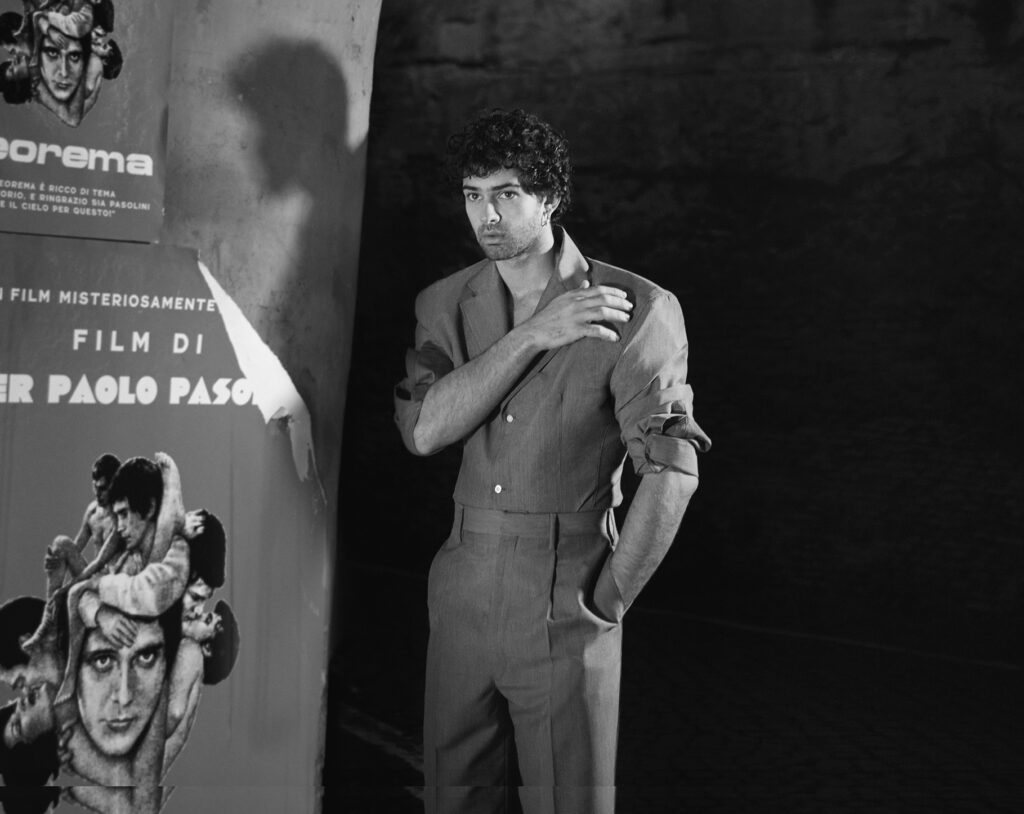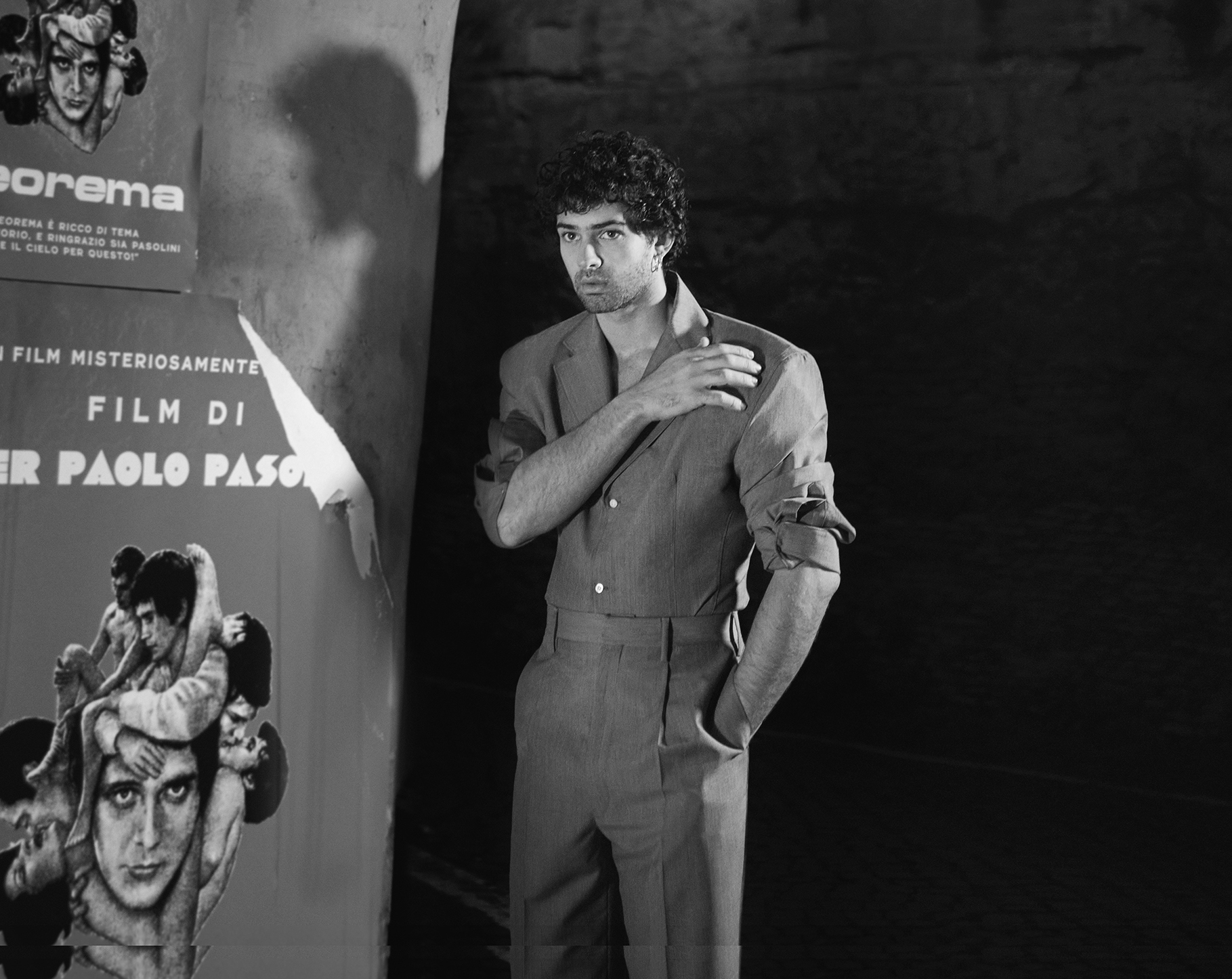Though ‘o Piecuro (Italian for “the coward”) became Massimiliano Caiazzo’s nickname after his breakout role in the Italian teen drama The Sea Beyond, the young Italian actor is far from embodying his character’s moniker in real life. Interestingly, before auditioning for the Netflix show, which tells the story of inmates at a juvenile detention center in coastal Italy, Caiazzo was considering a break from Italian cinema (and Rome altogether).
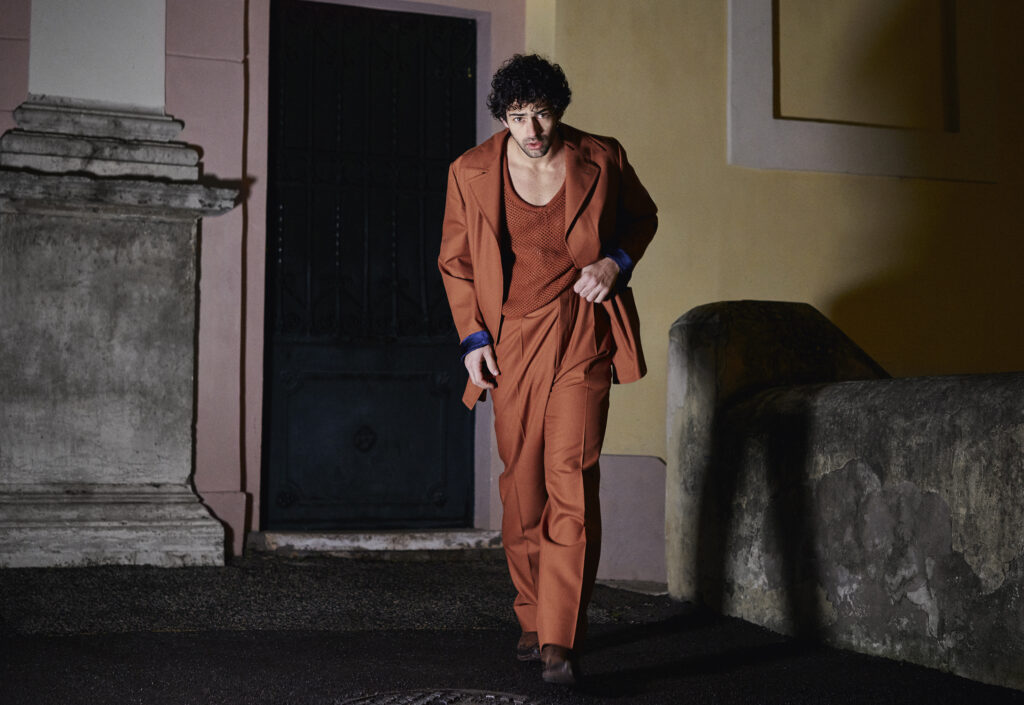
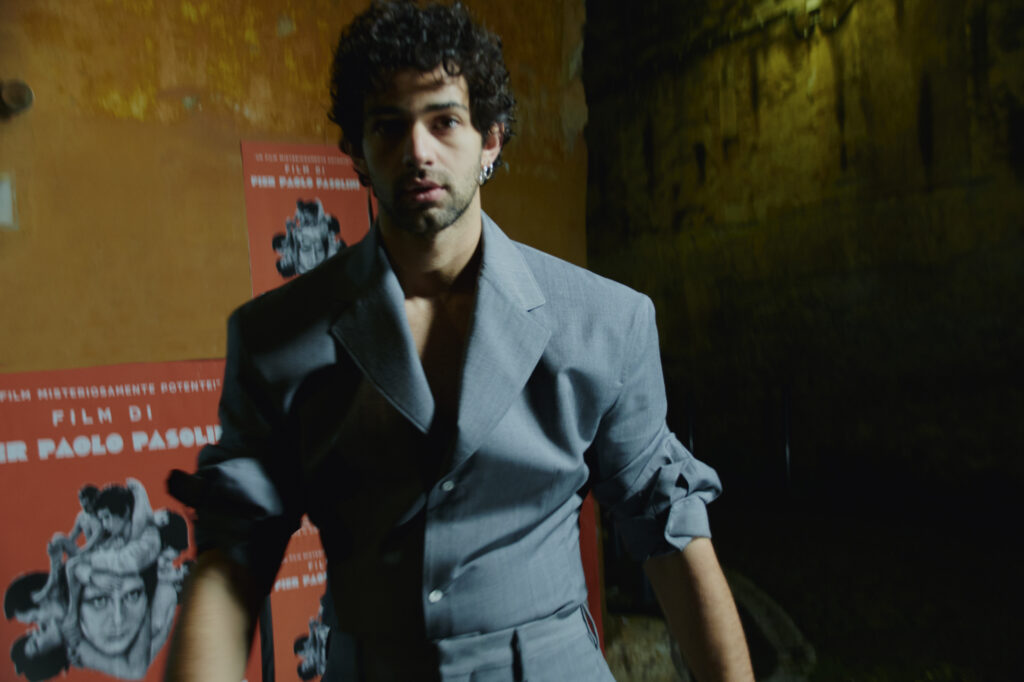
Four years later, after having gained international recognition for his role as the mob heir turned hairdresser, Carmine Di Salvo, in The Sea Beyond, he is learning how to manage the schedule of a full-on star. As VMAN hits the market, so will the fourth season of The Sea Beyond, and Caiazzo is in the middle of filming something else for the streaming giant, which will be announced later this year alongside a Disney Plus film, Wonder Boys.
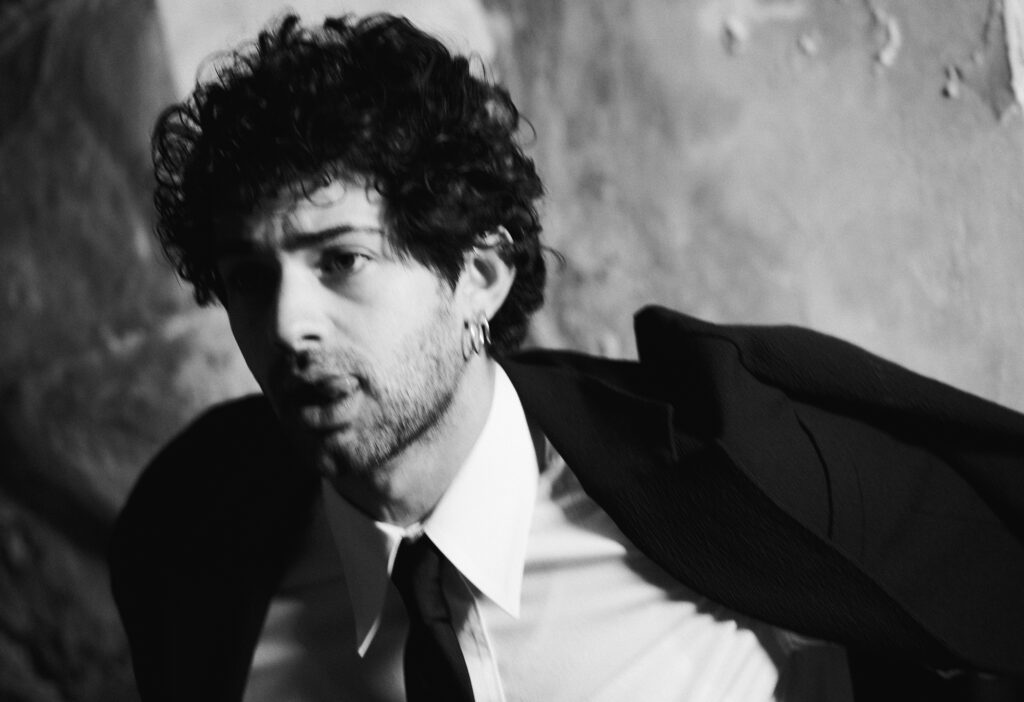
And, of course, he’s looking good, too! As a Fendi ambassador, the performer’s bond with clothes is an important one. Over the phone on one Italian winter afternoon, we chatted about the actor’s relationship with fashion, style, fame, and more.
VMAN: Tell me about your roots and growing up close to Naples: How much of an impact do your origins have on the roles you play?
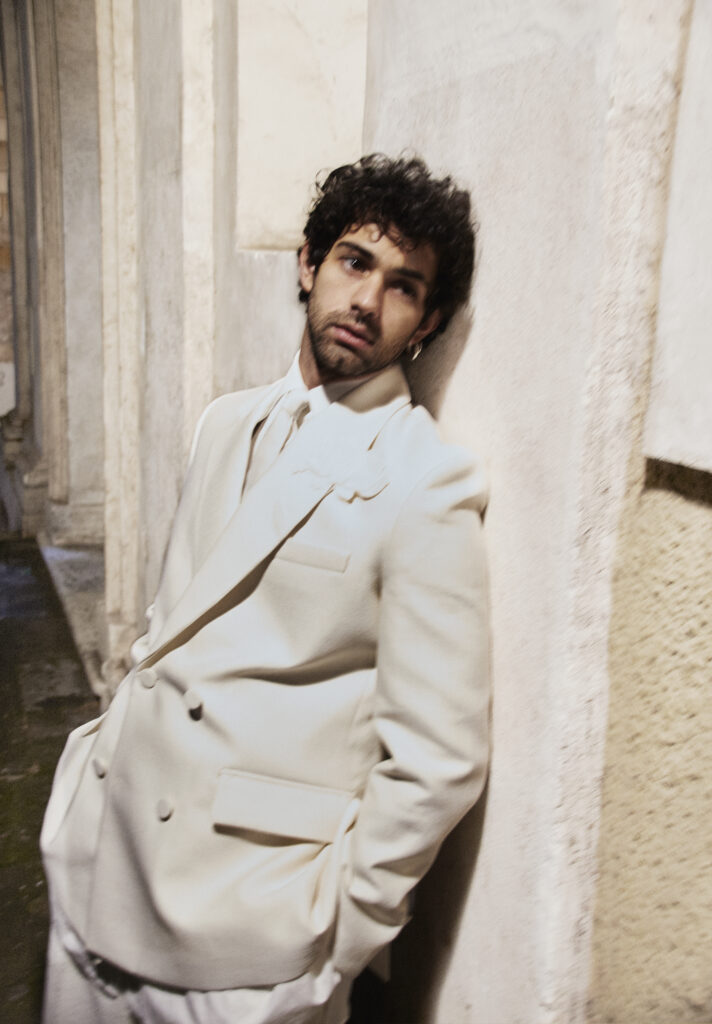
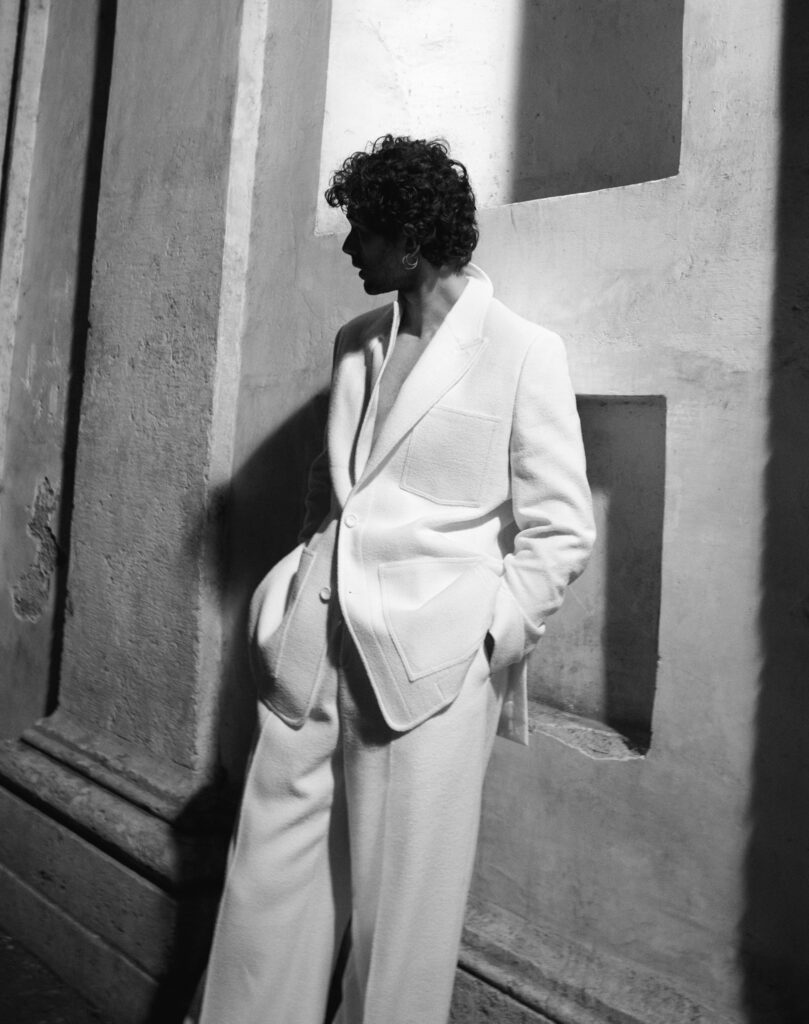
MASSIMILIANO CAIAZZO: Castellammare di Stabia’s proximity to the sea has left an important signature growing up. I did water sports for many years at a competitive level and that dedication became the mold to build my characters’ emotional point of view. It is no coincidence that the first roles I played were all roles with roots in the language and city of Naples.
VMAN: Now living in Rome, how much of Italian culture do you bring to your acting?
MC: It’s been 9 years since I first came to Rome. This city has been crucial to my training and I still connect with my mentors anytime I have to play a new character. Italianness, which is not and must not be a stereotype, is an inevitable transverse hint to all the roles that I have played: an important added value, I believe. Pier Paolo Pasolini has been a crucial artist for me, as have the films of Massimo Troisi, Totò, and Eduardo de Filippo.
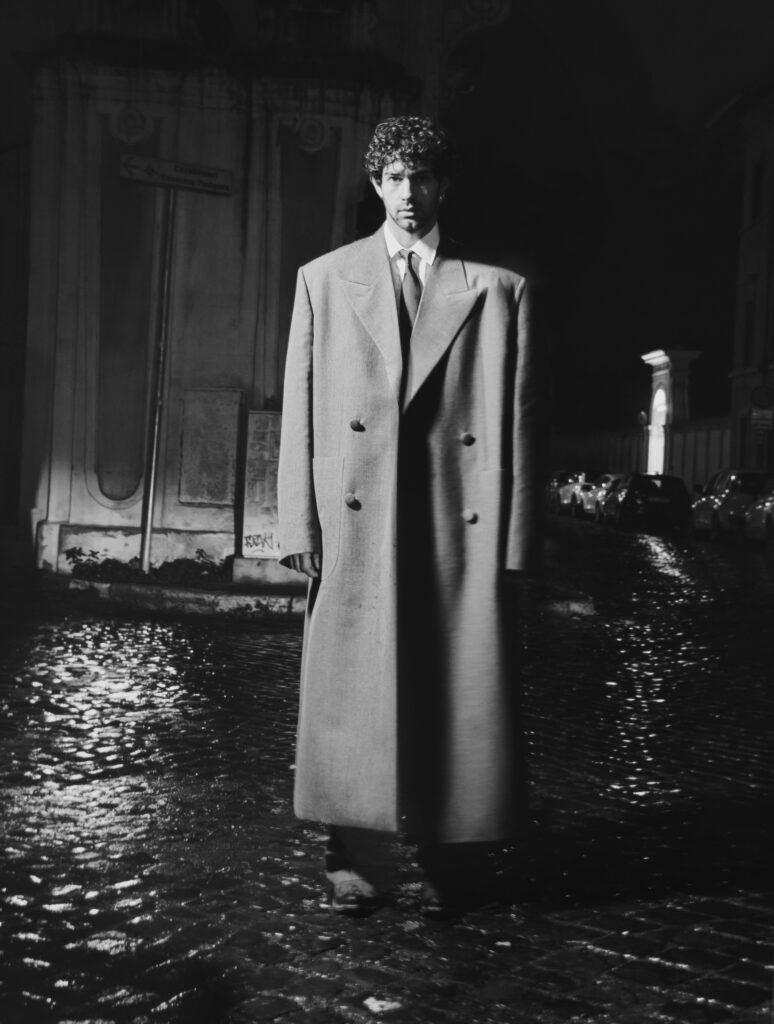
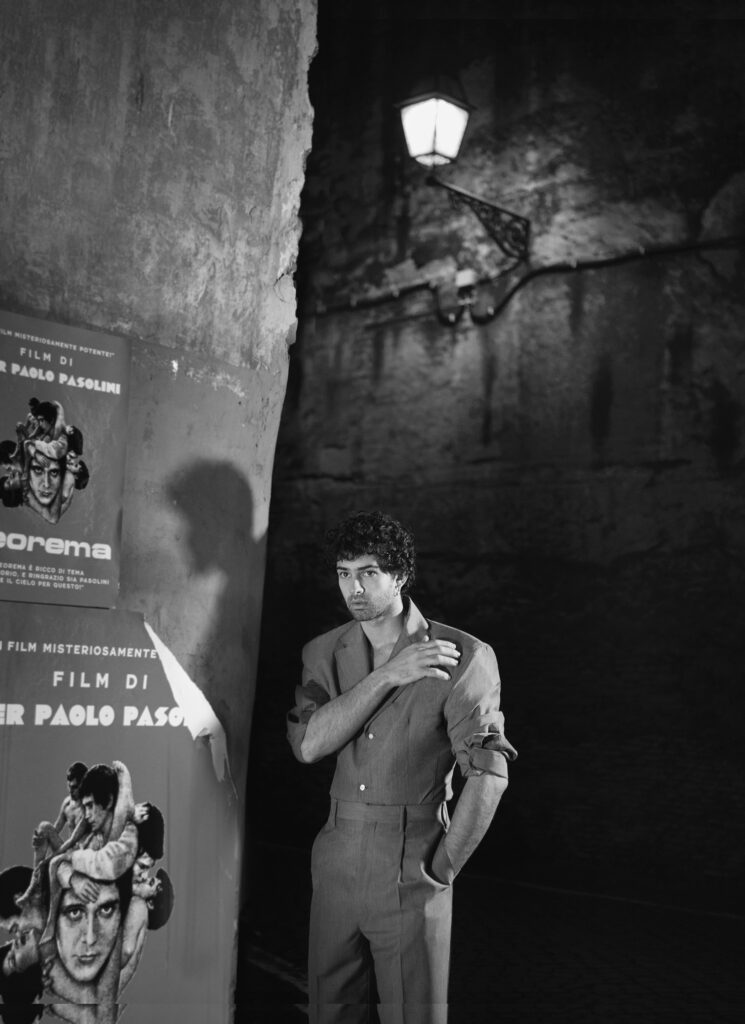
VMAN: Rome is defined as the eternal city. Do you think the arts—like cinema and fashion—are eternal, too? Or, rather, strongly attached to the moment?
MC: One thing doesn’t exclude the other. Every artistic event is the manifestation of a certain historical period and its specific circumstances, the difference lies in the artist. When an artist manages to channel a universal message, you have a classic.
VMAN: How does fashion help you embody the characters you play?
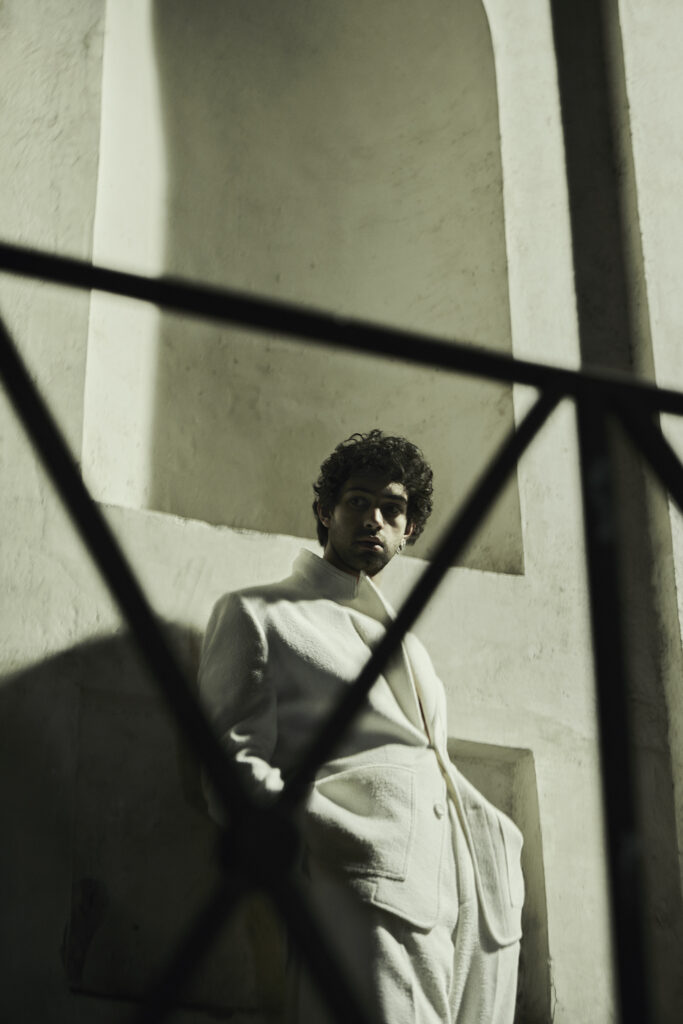
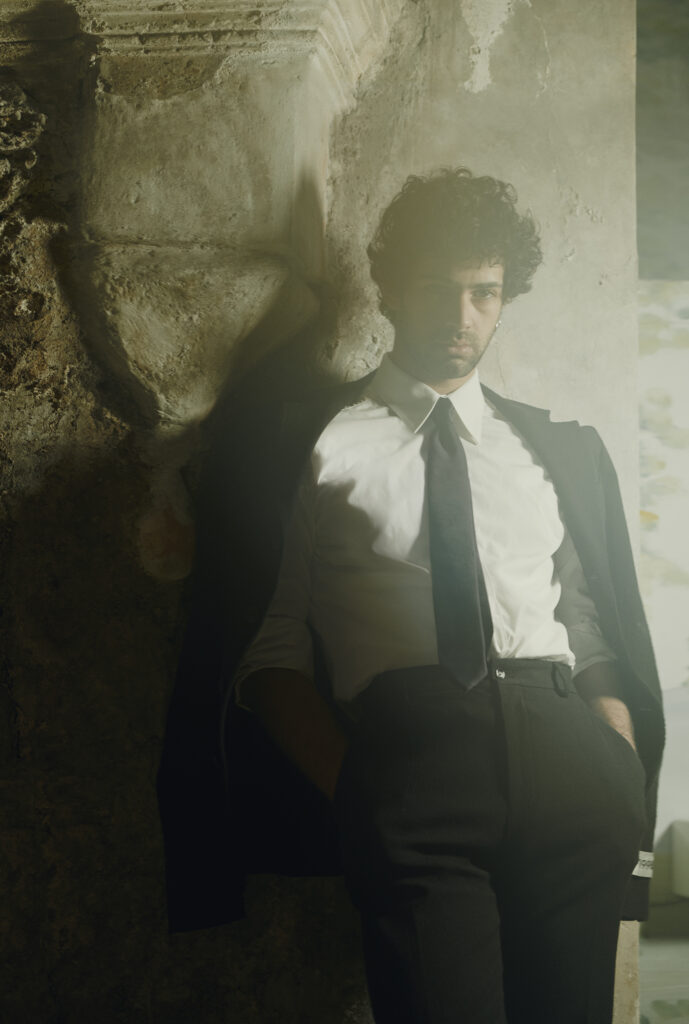
MC: Costumes and fashion can provide insight into a character’s general physicality. When I played Riccardo Degli Esposti in “Filumena Marturano”, the way he dressed gave the character a certain type of movement that differentiated him from the others.
VMAN: Outside of cinema, what’s your personal relationship with clothes?
MC: I am very fascinated by fashion. If I find myself playing a character for a long time, their stylistic characteristics end up influencing me. At some point, I had to dress very urban for six months and I never got rid of [the] high-waisted pants. In any case, clothes rhyme with comfort to me.
VMAN: If you had to choose a garment that represents you, which would it be and why?
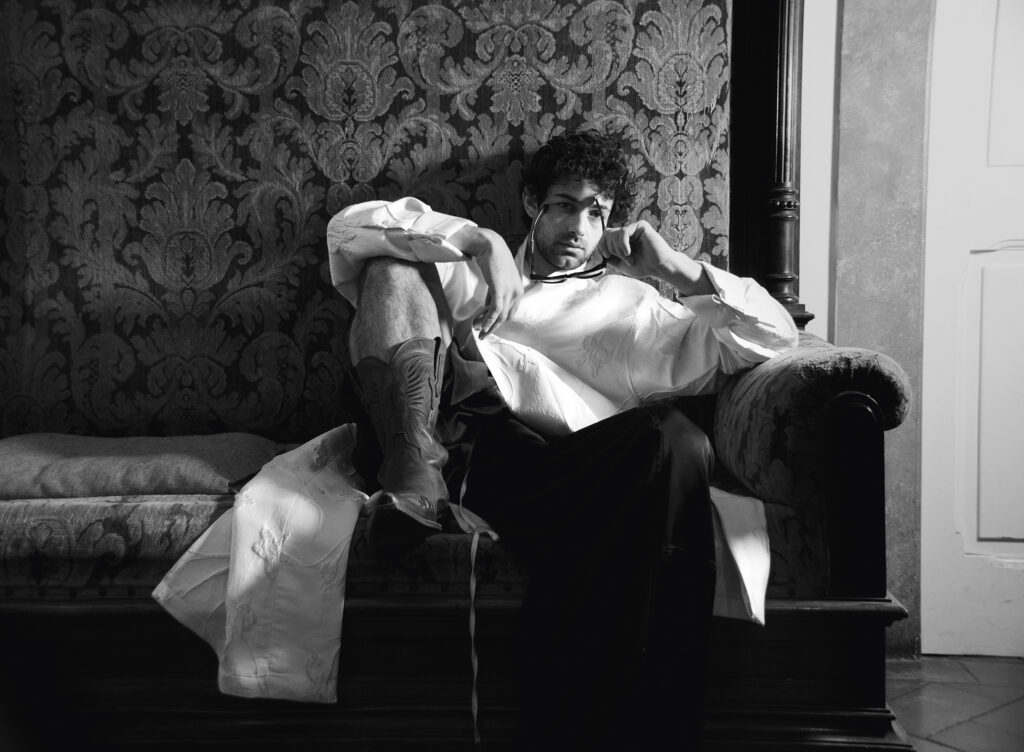
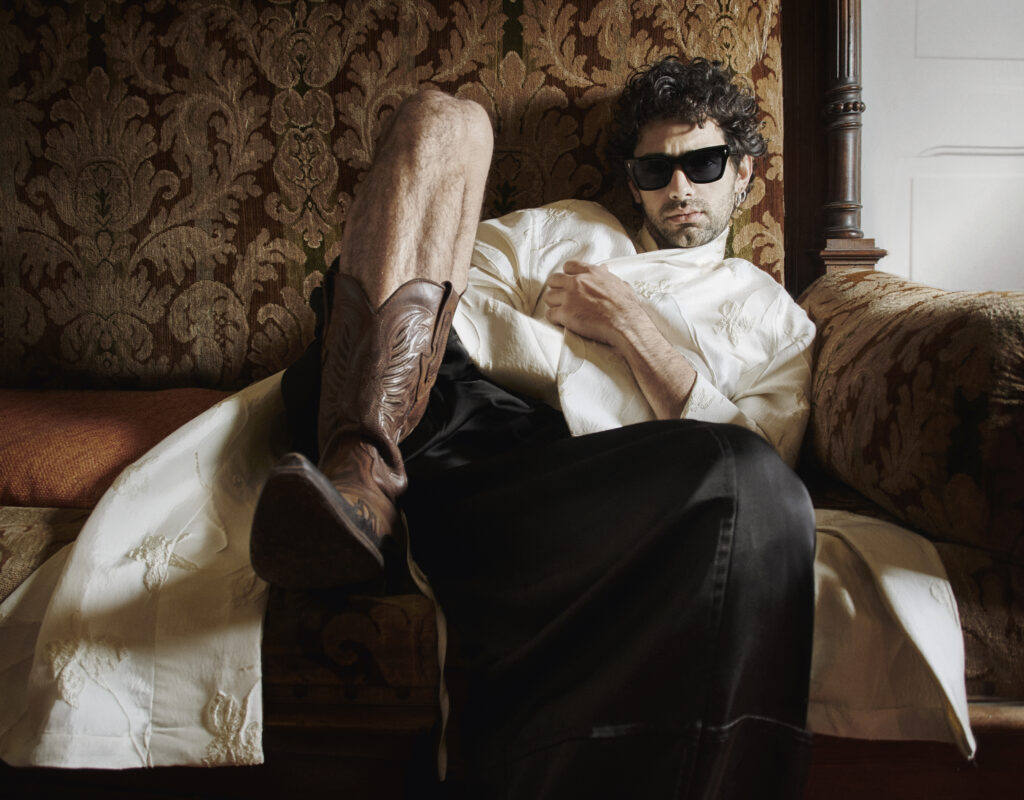
MC: High-waist flared pants and boots. I feel very comfortable with both and I have many different models, which I like to pair with rings.
VMAN: Do you have any rituals before filming a scene?
MC: Whether it’s a stage or a set, I always kiss my hand and touch the floor I’m walking on. I am very “scaramantico” (superstitious in Italian) but, other than that, I change gestures from role to role.
VMAN: What’s your relationship with success and failure?
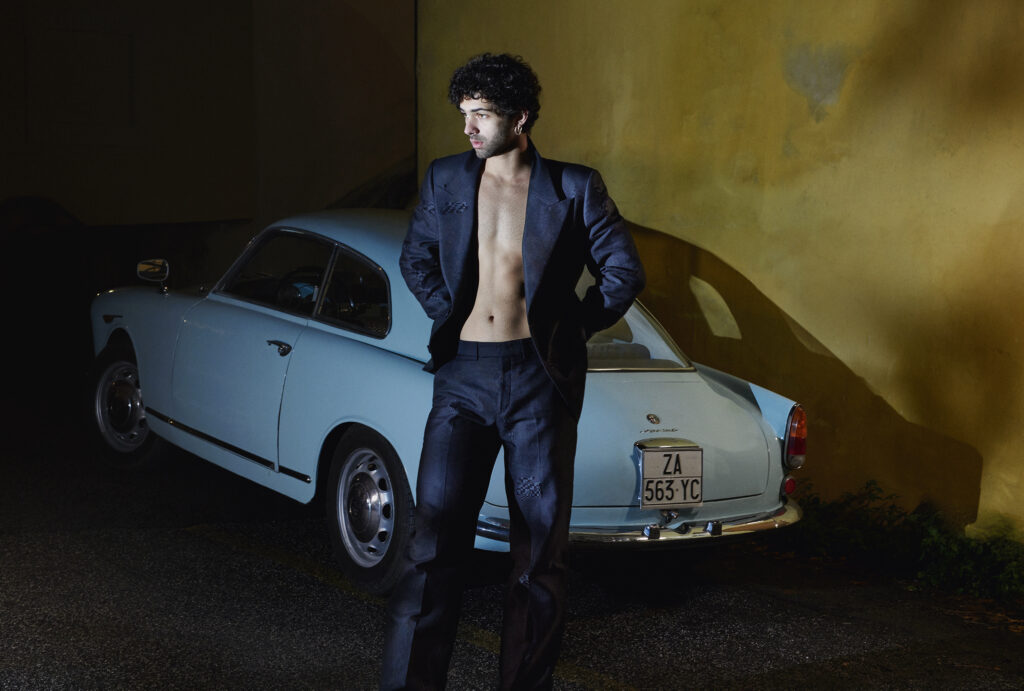
MC: It’s human, I had to learn how to handle what is happening. It scares me to fail, but sport has taught me that defeat can ignite the fire for victory as it makes you hungry.
VMAN: What’s the role of cinema in wartime?
MC: Cinema, like art, is a testimony to the present moment, animated by artists who have the courage to witness reality. It doesn’t have the power to change things but it has the power to shake consciences.
This story appears in the pages of VMAN 52: now available for purchase!
Photography Brett Lloyd
Fashion Robert Rabensteiner
Groomer Giulio Ordonselli
Set design Soraja Cehic
Executive producer Lucinda Agar (Magma Productions)
Producer Serena Notarmasi (Magma Productions)
Photo assistants Enrico Brunetti, Valerio Di Girolamo
Stylist assistant Irene Casillo
Production assistant Gus Riccioni
Discover More
